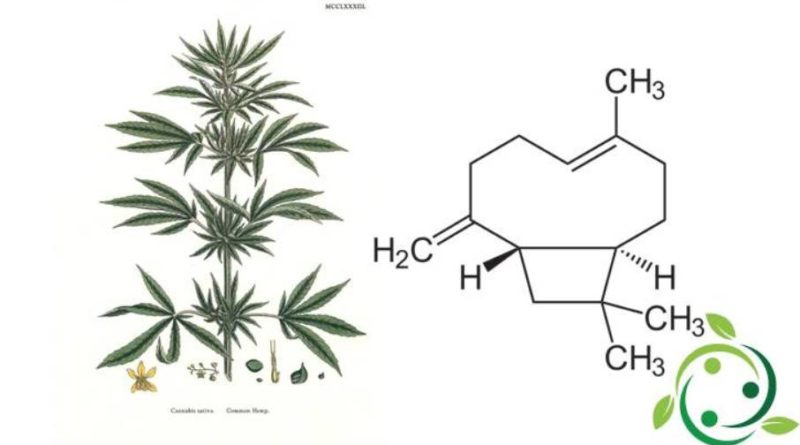β-caryophyllene
β-caryophyllene
Β-caryophyllene, also known by the abbreviation BCF and having a brute or molecular formula: C15H24, is a natural bicyclic sesquiterpene present in many essential oils. The molecule consists of a cyclobutane ring which, in fact, is very rare in natural organic substances.
In nature, β-caryophyllene is found in numerous plants, including hops, black pepper, rosemary, cannabis, etc.
Β-caryophyllene is not only a terpene but also plays a role very similar to that of cannabinoids.
This particular action allows him to interact with some of the receptors of the human endocannabinoid system.
The main anchor points for cannabinoids present in the endocannabinoid system are the CB1 and CB2 receptors. Cannabinoids like THC activate both of these receptors and the result is a psychoactive effect.
Β-caryophyllene, unlike other cannabinoids, binds only to the CB2 receptor, which means that it does not cause any psychoactive effect.
Obviously this factor has an important relevance considering that the psychoactive nature of some drugs, including those based on cannabis, limits the use precisely for this their secondary effect.
As it is known, THC is illegal in many parts of the world and people who use cannabis, for therapeutic purposes, increasingly require drugs rich in CBD, a non-psychoactive cannabinoid.
Leaving aside the huge research resources for the production of synthetic cannabis, in the hope of obtaining the same therapeutic effects as marijuana but without its psychoactive effects, cannabinoids that interact with the CB2 receptor can help treat various ailments such as arthritis and multiple sclerosis, but without the inconvenience of psychoactive effects. Although it may seem strange to negatively consider the effects of THC, some patients need to remain fully active and functional after being medicated.
Although research is still in its infancy, β-caryophyllene begins to show some promising results for its potential application as a medicinal molecule.
In a recent study, some researchers emphasize how this compound has the ability to interact with the CB2 receptor, confirming what has already been discovered in numerous other studies, namely that the CB2 receptor is directly involved in modulating the responses of inflammatory and neuropathic pain.
This study showed that orally administered BCF reduces the responses of inflammatory pain, also reducing spinal neuro-inflammations. The authors thus concluded that BCF may be significantly effective in treating some prolonged and debilitating pain-related conditions.
Warning: The information shown is not medical advice and may not be accurate. The contents are for illustrative purposes only and do not replace medical advice.

